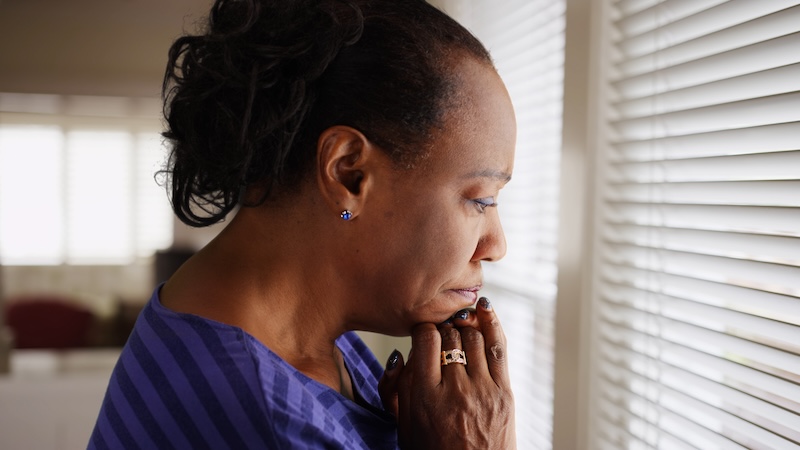Friend’s Cancer Diagnosis Splinters Friendship
Hurtful comments are driving a wedge

A woman is concerned about her longtime friend’s cancer diagnosis, but the friend’s aggressive reactions to her inquiries are damaging the friendship. Advice columnist Eric Thomas weighs in.
Dear Eric:
My best friend of nearly 50 years has been diagnosed with cancer, and the prognosis isn’t good. Naturally, I want to support her, but she’s making it very challenging.
I just spoke with her on the phone to check in, and she got angry with me over something incredibly simple. I had asked about her pain level during her treatment that day and expressed how sorry I was that she had to endure such pain.
She told me that if I asked questions like that, she wouldn’t be able to talk to me during her treatment. It’s clear she wants me in her life; I was the second person she called to talk about her diagnosis, and after our recent conversation, she even asked me to spend the day with her.
However, growing up, I was often degraded by my older sister, and I have zero patience for that kind of treatment now. A couple of years ago, my friend raised her voice at me. I’d made a minor mistake – it felt completely blindsiding and didn’t make sense to me. I was so stunned that I mostly stayed quiet for the rest of our trip, just listening and giving simple responses.
My immediate reaction both times my friend acted this way was to cut ties with her. I know this sounds petty, especially given her current health situation.
How do I handle it when she reacts this way again? It’s worth noting that she doesn’t treat other people this way, not even her husband.
– Friend or Foe?
Dear Friend:
It sounds like your friend has a way of responding to stress that, unfortunately but understandably, triggers you, making a sharp response hurt even more. It will help you to remember that, even when she responds in a way that’s less than kind, she’s not your sister and the response doesn’t bring with it all the baggage of that relationship.
In this recent instance, she communicated how she didn’t want to be engaged with regarding her cancer treatment. However, it’ll help both of you to figure out what she does want. So, ask her. “Last time, I said something that struck you the wrong way. I don’t want to do that, and I don’t want to have conflict between us. Are there things that would be helpful for me to ask about or things that you’d like me to steer clear of?”
By working from a generative place, you keep the conversation more positive, and you also open up the door to ask her for what you need. As you know, this is an emotionally devastating experience, so she may not be able to be herself in her responses. Try to extend her more grace. If and when your feelings get bruised, put her responses in the context of everything else that is going on in her life. This will help you set up good internal boundaries. She’s asking for you to be there for her and I think you’d regret not doing so.
 R. Eric Thomas (he/him) is a national bestselling author, playwright, and screenwriter. His accomplishments include “Eric Reads the News,” a daily humor column covering pop culture and politics, serving as the interim Prudie for the advice column “Dear Prudence,” and “Congratulations, The Best Is Over.”
R. Eric Thomas (he/him) is a national bestselling author, playwright, and screenwriter. His accomplishments include “Eric Reads the News,” a daily humor column covering pop culture and politics, serving as the interim Prudie for the advice column “Dear Prudence,” and “Congratulations, The Best Is Over.”
Send questions to eric@askingeric.com or P.O. Box 22474, Philadelphia, PA 19110. Follow him on Instagram and sign up for his weekly newsletter at rericthomas.com.
©2025 Tribune Content Agency, LLC.
Find more words of wisdom like conflicts over parents’ burial plans – from insensitive parents to a husband’s mid-life crisis, DNA surprises, and more:
Boomer Advice for Life department
For advice targeted to senior adults and their families – like caregiving, grandparenting, retirement communities, and more:


